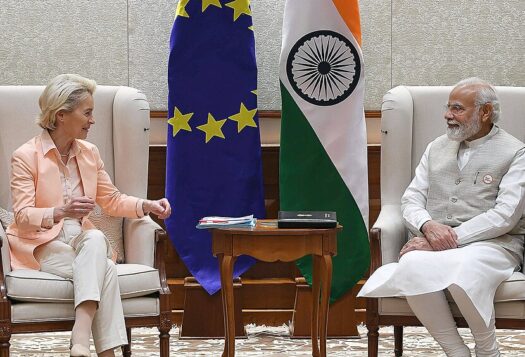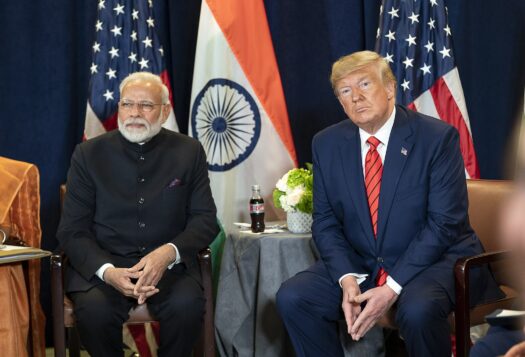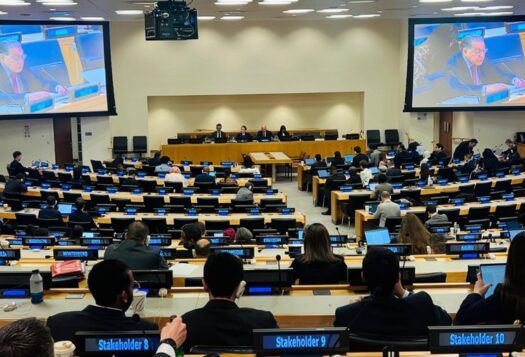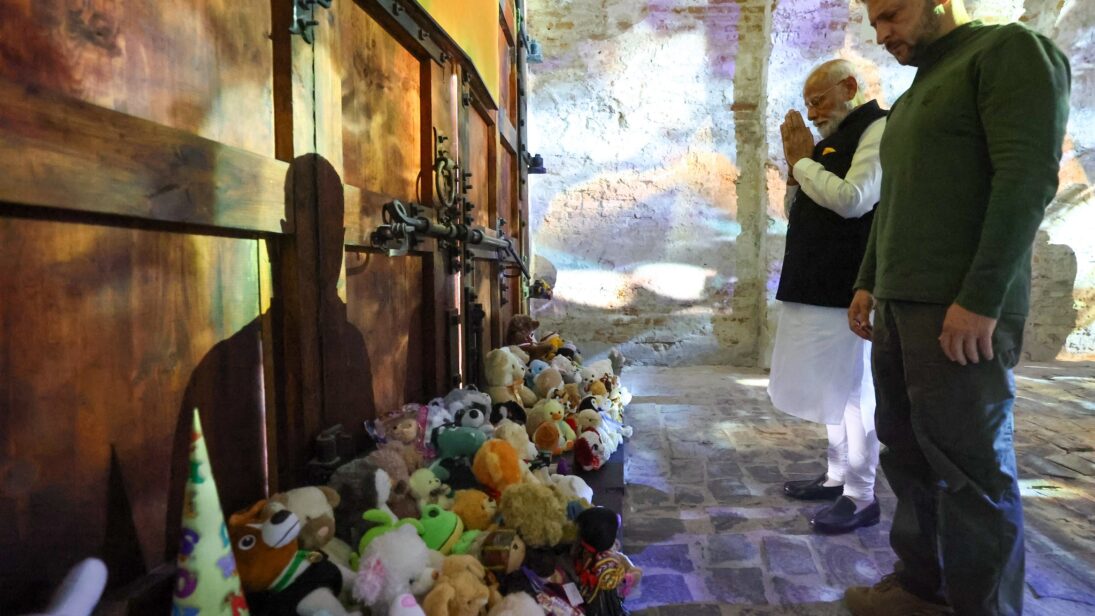
The recent escalation of tensions between Russia and Ukraine has yet again underscored the urgent need for international diplomatic efforts to ease the situation. In this context, Indian Prime Minister Narendra Modi’s visit to Kyiv last month has sparked a range of responses and raised intriguing questions about India’s diplomatic strategy. Some Indian analysts interpreted Modi’s visit as a carefully calculated diplomatic move aimed at delicately balancing Ukraine’s sovereignty and India’s longstanding relationship with Russia. However, there are also concerns that the visit may have strained India’s ties with Russia and could be seen as unnecessary given the existing lack of trust between India and Ukraine and Russia’s significant influence in India’s diplomatic matrix.
Before Modi’s visit, there was speculation that the trip to Kyiv was a strategic move to address the fallout from his earlier visit to Moscow and his warm reception of Russian President Vladimir Putin. Critics argued that the optics of Modi’s camaraderie with Putin, amid Russia’s military actions in Ukraine, had caused friction between India and Ukraine, as seen by Ukrainian President Volodymyr Zelenskyy tweeting his disappointment. However, the subsequent joint appearance of Modi and Zelenskyy in Kyiv suggested a concerted effort to defuse tensions and chart a more constructive path forward.
The Beginning of De-Hyphenation
During his visit to Kyiv, Modi reiterated India’s stance on the conflict, emphasizing the necessity of dialogue, diplomacy, and respect for Ukraine’s sovereignty and territorial integrity. Notably, the timing of Modi’s visit coincided with Ukraine’s unexpected incursion into Russian territory, which, although not officially on the agenda, underscored India’s recognition of Ukraine’s right to self-defense. Furthermore, the visit served to clarify India’s nuanced position on the conflict, conveying that India is neither aligned with Russia nor neutral in the situation. The policy adopted by New Delhi in this regard is “de-hyphenation,” a strategy of conducting independent foreign policy with two adversarial states. Modi’s emphasis on India’s commitment to peace and stability distinguished the country from other nations, such as China and Iran, which have openly supported Russia’s actions in the conflict.
The visit served to clarify India’s nuanced position on the conflict, conveying that India is neither aligned with Russia nor neutral in the situation.
Another critical aspect of Modi’s visit was to address India’s energy imports, signalling to Ukraine that India’s purchases of Russian oil are primarily based on economic considerations, such as discounted rates for oil, rather than geopolitical alliances. This message resonated positively with Ukrainian authorities, offering a sense of optimism about India’s economic decisions. The Ukrainian President said on X that he and Modi had honored “the memory of the children whose lives were taken by Russian aggression.”
Additionally, Modi’s visit underscores India’s proactive approach in response to evolving global geopolitics. With Russia’s strengthening ties with China and the potential implications for India’s relations with both countries, engaging with Ukraine represents a strategic move to assert India’s influence, monitor Russia’s actions, and reaffirm its commitment to independent foreign policy decisions. The visit shed light on the complexities and challenges in India-Russia relations, particularly in light of delayed deliveries of the S-400 missile system and overdue dividends from Indian investments in Russia’s energy sector. India has a 20 percent stake in the Sakhalin-1 oil field and sought oil equity from Russia. However, Russia declined and proposed providing dividends to India instead. Due to Russia’s energy companies being disconnected from global payment systems, they have been unable to pay India, resulting in unpaid dividends amounting to nearly USD $900 million. Despite this, Russia is offering additional dividends, with India expressing dissatisfaction. Additionally, there is an ongoing concern regarding Indian nationals serving in the Russian military. From an Indian standpoint, Russia’s refusal to supply spare parts has disrupted global supply chains. Consequently, this has hindered the upgrade of Indian defense equipment, prompting the country to seek alternative defense cooperation options. Some experts have proposed establishing joint ventures in India, where Ukrainian technicians can work with Indian counterparts to establish manufacturing units as a potential solution.
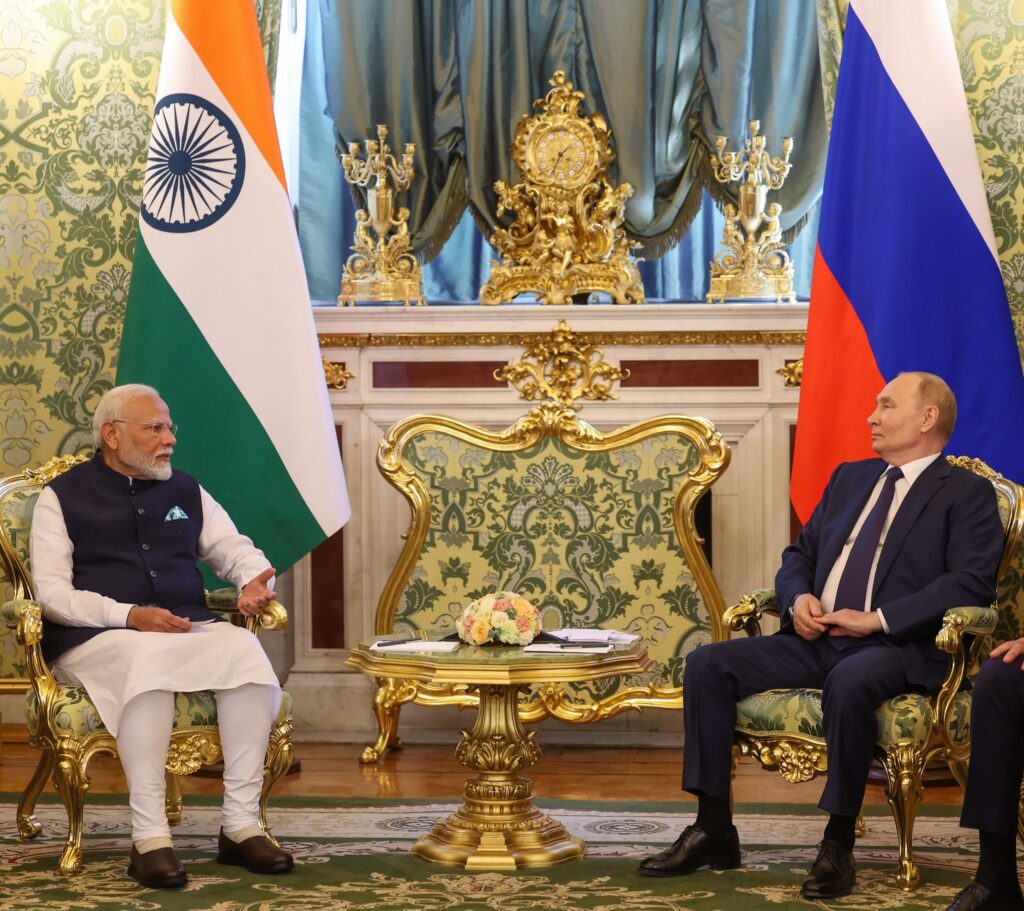
The visit also emphasized the imperative of diplomatic engagements and peace talks, and India encouraging Ukraine to pursue dialogue amidst heightened tensions and stalled negotiations. Emphasizing the significance of his Ukraine visit, Modi was accompanied by a high-level delegation, including Indian External Affairs Minister Subrahmanyam Jaishankar and National Security Advisor Ajit Doval. The landmark visit did lead to numerous agreements between Modi and Zelenskyy. These agreements are expected to facilitate expanded cooperation between the two countries in agriculture, healthcare, culture, and humanitarian efforts. The terms of the humanitarian agreement signed in Kyiv could potentially open the door for India to play a role in Ukraine’s reconstruction.
Finally, Modi’s visit to Ukraine showcased India’s position on global conflicts, its management of complex bilateral relationships amid evolving geopolitical dynamics, and its commitment to proactive diplomatic engagement during times of crisis. Jaishankar emphasized that India was “never neutral” in the Russia-Ukraine war. It’s possible that he was responding to Western critiques of India’s strategic autonomy. Still, his statement could also signal no room for “neutrality” in such a conflict. With mounting pressure on Russia and Ukraine to come to the negotiating table and end a war that has only exacerbated global economic challenges, India is positioning itself as a peacemaker, albeit from the sidelines and always with its interests in mind.
With Russia’s strengthening ties with China and the potential implications for India’s relations with both countries, engaging with Ukraine represents a strategic move to assert India’s influence, monitor Russia’s actions, and reaffirm its commitment to independent foreign policy decisions.
A Small Win
Like many of its strategic balancing mechanisms in the Middle East (especially in the Israel-Palestine conflict) and with Modi’s first visit to Ukraine, de-hyphenation has begun in the Russia-Ukraine crisis for India. This provides a way forward for India to engage diplomatically with the entire Eastern Europe region more comfortably, with an open window in Sir Halford Mackinder’s scheme of heartland engagement. The subsequent visit by Modi to Poland (the first in 45 years) also opened channels for deeper engagement with Europe as a whole and explored prospects beyond just optics. The joint statement, released by the Indian Ministry of External Affairs, mentions a succinct five-year action plan to implement a “strategic partnership” consisting of defense industry cooperation, joint exercises, social security, academic exchanges, and economic cooperation. Some experts see the Poland visit as India’s attempt to go beyond the big countries of Western Europe and engage with the region as a whole.
With the Ukraine visit, India’s strategic autonomy is maintained, the trust deficit with Ukraine is reduced, and relations with Russia continue to remain on track. In times of deadlock, such forward diplomacy has clarified India’s position on the Russia-Ukraine War. And this win, even if small and seemingly inconsequential, should be counted.
Also Read: Modi’s Visit to Russia: A Strategic Miscalculation?
***
Image 1: MEAphotogallery via Flickr
Image 2: MEAphotogallery via Flickr
